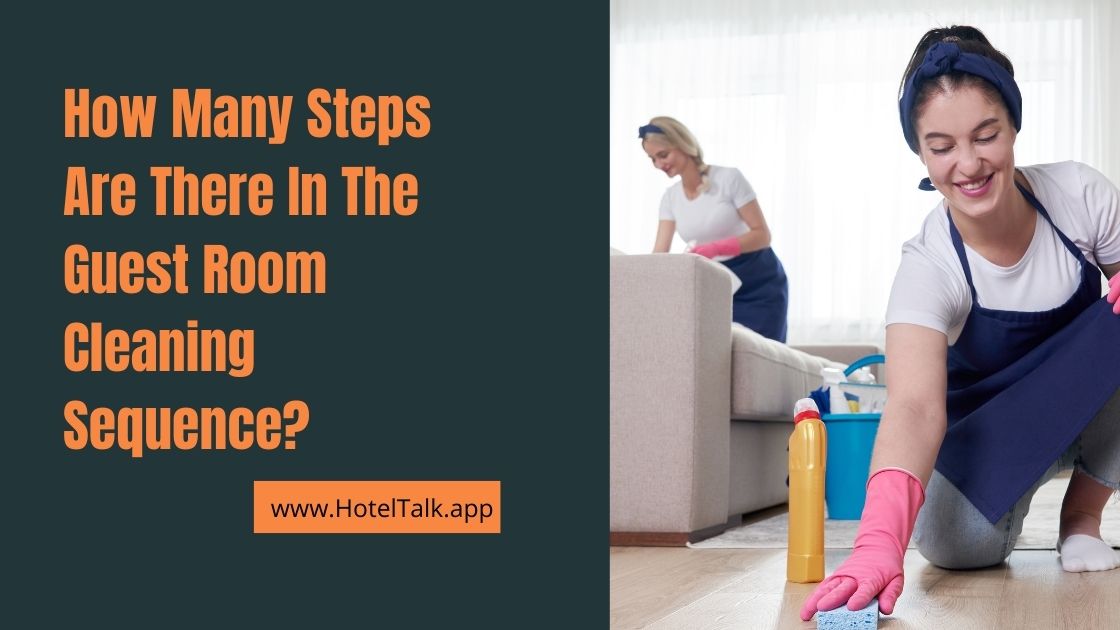1.Emptying the trash
When cleaning a guest room, the important step is emptying the trash. Here’s how to do it:
Start by pulling out the trash can from under the desk or nightstand. If there is no trash can, take the bag out of the can and tie it closed. Hold onto the bag as you walk to the nearest trash can.
If there is no garbage disposal, put the bag in the trash can and step on it to close it. If there is a garbage disposal, put the bag in and push down on the disposal switch with your hand.
2. High dusting
Dust accumulates on surfaces, in our airways, and clings to our skin. While some dust is inevitable, high levels can lead to a number of health issues. Inhalation of dust can cause respiratory problems, while contact can cause skin irritation. Dust also contains allergens which can trigger asthma and other respiratory allergies. To reduce the amount of dust in your environment, regularly clean all surfaces and keep clutter to a minimum. Vacuum often and use a damp cloth to wipe down surfaces. If possible, avoid using carpets and rugs and choose hard flooring instead.
3. Sanitizing and spot cleaning
Sanitizing is an important part of keeping the room clean. Germs and bacteria can spread easily, so it’s important to kill them off before they can make you sick. There are many different ways to sanitize, including using bleach, alcohol, or vinegar. Be sure to read the instructions carefully to make sure you’re using the right product for the job.
Spot cleaning is also an important part of keeping your home clean. It’s especially useful for removing dirt or stains from specific areas.
4. Restocking supplies
There are a few key items want to have on hand in the guest room before any guests arrive. Fresh towels, extra toilet paper, and shampoo are all must-haves. May also want to stock up on additional bedding, like sheets and blankets.
Finally, don’t forget about the little things that can make your guests feel welcome. A basket of snacks or a pitcher of cold water on the bedside table are always appreciated.
5. Cleaning the bathrooms
Cleaning the bathrooms can be a tedious task, but it is important for the health and safety of everyone who uses them.
There are a few different ways to clean a bathroom. Some people prefer to use a mop and bucket, while others prefer to use a spray bottle and paper towels. No matter which method you choose, it is important to clean all surfaces, including the floors, walls, and countertops. You should also disinfect the toilet and sink.
6. Mopping the floors
The guest room is one of the most important rooms . It’s important to make sure it’s clean and tidy. One way to do that is by mopping the floors.
Start by filling a bucket with hot water and adding some cleaning solution. Dip your mop into the bucket and start mopping the floors. Make sure you get into all the corners and crevices.
If there are any spots or stains on the floor, use a scrub brush to scrub them until they’re gone. Once you’re finished, rinse the mop in the bucket and wring it out well. Give the floor a final wipe with a dry cloth to remove any excess moisture.
7. Change bed sheets
When you have guests over, it’s important to make sure the guest room is clean and comfortable. One of the most important things to check off your list is changing the bed sheets. Fresh bed sheets make a big difference in how a guest feels, and they’re an easy way to show your guests that you care.
it’s a pretty simple process. Start by pulling the old sheets off of the bed. If there are any stains or dirt on the mattress, be sure to clean them up before putting new sheets on. Next, fold the old sheets up and put them somewhere where they can be easily accessed later.
Now it’s time to put new sheets on the bed. The best way to do this is to start at one corner and pull the sheet taut as you go.
8. Hand hygiene and inspection
When cleaning a room, it is important to practice good hand hygiene and inspect the area for potential hazards. Before starting, be sure to read the labels on any cleaning products to ensure that you are using them safely. Be especially careful when using harsh chemicals, as they can cause skin irritation or respiratory problems if not used properly.
Always wear gloves when cleaning and avoid contact with your eyes and mouth. If you do come into contact with any chemicals, be sure to rinse your hands thoroughly. When cleaning surfaces, use a cloth or mop to avoid spreading bacteria or dust particles. Pay special attention to areas that are often overlooked, such as under furniture and around beds.
It is also important to check for potential hazards while cleaning. Be aware of anything that could cause injury, such as cords or broken glass.
